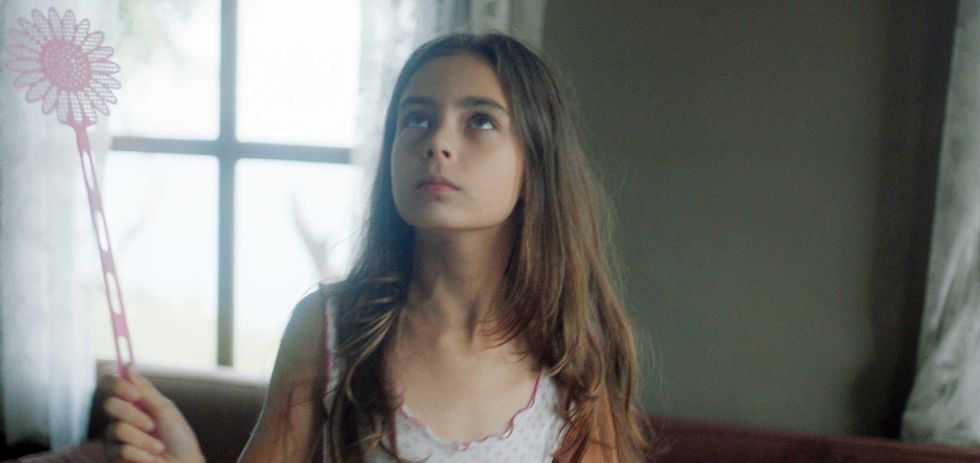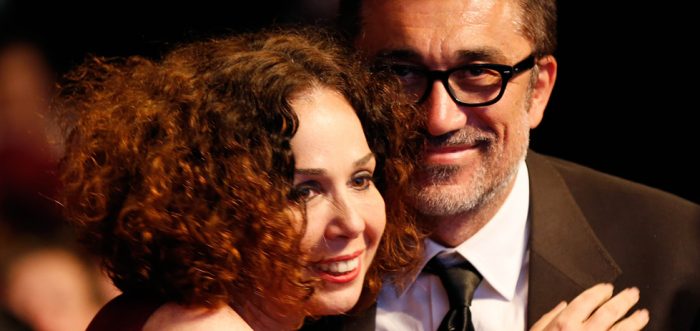Despite the increasing momentum and strength in modern Turkish Film, Zeynep Özbatur Atakan has remained one of the country’s most influential cinematic voices. As the producer behind Nuri Bilge Ceylan’s Winter Sleep, Once Upon A Time in Anatolia, Three Monkeys and Climates – as well as the founder of the Zeyno Film production company – Özbatur Atakan has been heavily involved in many of Turkey’s most well-received international works in recent years. Beyond this, Özbatur Atakan has chaired the Turkish Guild of Film Producers, and served as the vice-president of the European Women’s Audiovisual Network. She remains one of the most influential figures in Turkish Cinema to date. We caught up with Özbatur Atakan at Brisbane Asia Pacific Film Festival to talk about her programming of the Turkish Waves selection of the festival.
Turkish Waves is a mixture of retrospective and current cinema in Turkey. What inspired the various choices?
You know, yeah, this is Turkish Waves; it’s an idea where, last year, we met with Maxine Williamson in Instanbul after APSA. We talked together and figured we had to do it this year, for Turkish cinema – because it’s very important as this is the 100th anniversary of Gallipoli. So we decided to make the Turkish focus, but not only modern cinema – but, a mixture of Turkish cinema.
The Bride and Hope are both very important films within Turkey; do you feel they’ve got a pursuing sense of importance in their message today that can appeal on an international level?
They are very important films in Turkey, the Turkish people love the film. They really wanted last year, and before couldn’t do it as we didn’t have the 35mm. So I wanted to share two important film: one is from Yilmaz Guney, who is a very important filmmaker, and the other is from Ömer Lütfi Akad, who is very famous too; and then we wanted to put them amongst this collection, you know?
What drew you to these two works?
In the 60s and 70s in Turkey, there were some problems –
Was there a particular criteria that you took with the selection?
Yes, my first criteria was the three films that have an APSA nomination; then the other three films are important samples of Turkish cinema from this year and last year. For example, I know Ivy was shortlisted this year, and last year The Lamb was shortlisted; they weren’t nominated, but they both made the shortlist. Then there are the three retrospectives: the first was Hope, then The Bridge, and then Nuri Bilge Ceylan’s first film The Small Town.
Mustang was a real surprise for me. It was really intricately constructed, and it managed to be completely affecting without needing to resort to gratuitous scenes; with violence and abuse often implied but rarely played out on screen. What drew you to it?
It’s an important film. It was very successful in the world. It first screened in Cannes, and then it had a lot of success in France too. From an international point of view, the director – a woman director – is really important for me. So, for example, in this selection, there’s two women directors – which is important to me. And then… it’s a good film; and that’s why I selected it.
With two new films screening in Turkish Waves, is there a growing scene in the industry in Turkey for women, and how have you found it as a producer in the country?
It depends; nowadays there are lots of women directors in Turkey, but it’s important to have these very good films together; and it’s important to see their second and third movies. A lot of them are making their first movies now, and seeing what happens next is important.
I guess it’s hard to talk about Turkish Cinema today, and what’s happening in the last five years –
It’s growing up, very fast.

– and I guess it’s to talk about that period without discussing Nuri Bilge Ceylan, whose been so central for the international presence of Turkish film. But you’ve worked very closely in bringing out 4 of his films.
I’ve been working with him for 11 years, and we will do another film, which he’s writing the script for now. For his previous films, he did them himself. It’s an extraordinary situation for the producer and director in Turkey.
With the retrospective of The Small Town, has this screened before in Australia?
No, it hasn’t screened before in Australia; so I chose it for that reason.
With the 100th anniversary of Gallipoli, which kind of promulgated a lot the reasons for doing this – I was curious as to how that connection was established to get this going?
Yes, it’s very important – the first time in Australia-Turkish connection for art. In APSA, Turkey is very successful; we had 21 nominations and 11 awards from APSA, which is a very good score.
I was curious as to where you feel Turkish cinema is now, and what kind of traction you think it has at the moment?
It’s growing up, and it’s going very well because the government supports it; so that’s going very well.
There’s a strong support from the government towards Turkish film?
Yes, there’s very strong support, and it’s very important because ten years ago there was nothing. But now the government supports, there’s guarantees, and there’s 150 films produced in a year; which is great.
And what you were planning on doing next with your work as a producer with Zeyno Films?
Oh, you know we used to work with Nuri Bilge Ceylan, and I have some workshops with young talents, and also I’m making a new organisation like this. But I have one project, this is my own project, about women in Turkey – this is, I think a documentary, that will be done next year.
Do you think it will come here?
I don’t know, haha, I wish.
Thanks so much for the interview and good luck with the screenings.
